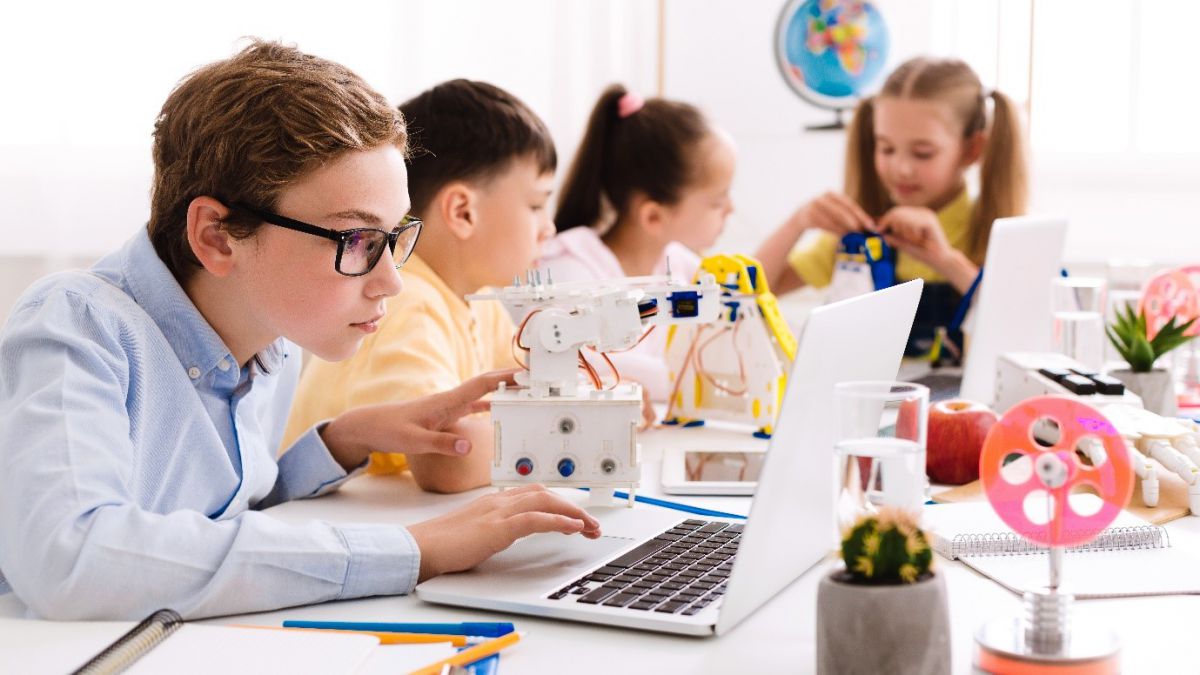'Embryo'-project inspires teenagers to solve manufacturing challenges

'Embryo' is one of EIT Manufacturing’s 2020 educational activities.
The project aims to inspire 14 to 16 year-olds to discover modern manufacturing, giving them the ignition to pursue an engineering career later on. Embryo aims at providing hands-on experience in industrial production through simple and fun exercises, with a strong focus on digitalisation and simple programming exercises.
Schools in Spain and Germany are testing the programme
So far, four classes in Spain and Germany are in the process of testing the programme, which has been adapted to a virtual format due to the Covid-19 pandemic. First, students receive an initiation to manufacturing, after which they learn basic programming using Arduino boards and many different sensors, and are then presented with the challenge to program a PLC (Programmable Logic Controller) piloting a metal bending machine. Then, students will work in teams to present the best product. In the future, the idea is to organize national and European wide challenges for the most outstanding teams.
Currently, the Embryo project team is busy developing the concept for next year and adding more practical features, where students will also be able to build a simple bending machine themselves based on instructions.
So far, the program has been very well received, with the practical lectures on manufacturing and basic programming being rolled-out in the two schools, and we are looking forward to adding new features and expanding to more countries next years
Lander Galdos, lecturer and researcher at Mondragon University at Arrasate-Mondragon Bilbao, Spain
Lander Galdos adds that he has seen strong demand for practical education modules such as this.
A multinational consortium leading the project
The EMBRYO consortium is made up by three partners. The Engineering faculty of Mondragon University is the leader of the project and as an expert in manufacturing and the development of innovative lecturing methodologies. The two other partners are Technische Universität Darmstadt and Arduino.
The secondary schools that participate in the first year of EMBRYO project are the Ikastolen Elkartea in the Basque Country and Albertus-Magnus-Schule Viernheim from the Rhine-Main region.
For more info about the program, visit the web site: https://www.eitembryo.eu

 Share this page
Share this page


